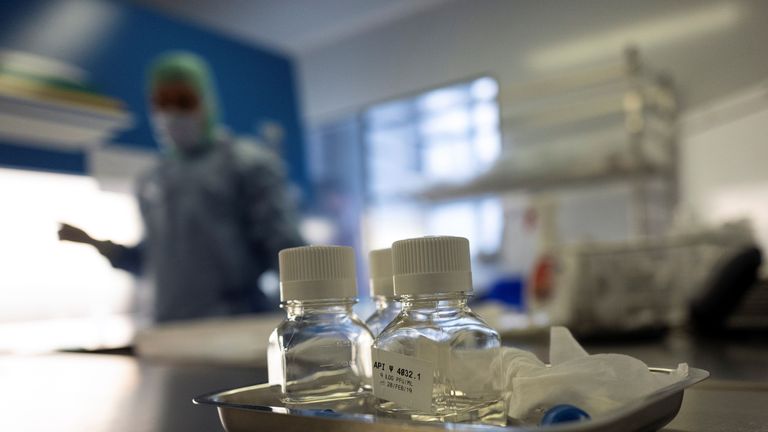Antibiotics could help thousands of women through assisted delivery
New research shows that giving all women who need an assisted delivery a single dose of antibiotics cuts the risk of infection by almost half.
Just one in 10 women (11%) suffered an infection when given antibiotics, compared with one in five (19%) of those given a placebo drug, the study found.
Experts said current guidelines from the World Health Organisation (WHO) should be updated.
Giving antibiotics would cut infections in new mothers by more than 7,000 in the UK every year – including life-threatening sepsis.
The research, published in The Lancet medical journal, was based on a clinical trial carried out at 27 UK maternity units.
Women were split into two groups. The first group of 1,715 women was given a single dose of amoxicillin and clavulanic acid as soon as possible and no more than six hours after giving birth.
The second group of 1,705 women was given a placebo.
In total, 65% of the babies were delivered by forceps and 35% by ventouse, with 89% of all women needing an episiotomy (a cut to make the vaginal opening bigger).
At the end of the study, 180 women in the amoxicillin and clavulanic acid group had a confirmed or suspected infection (11% of 1,619 women).
This compared with 306 women in the placebo group (19% of 1,606 women) – showing antibiotics cut the risk of infection almost in half.
From the infections, there was a 56% reduction in cases of sepsis, with 11 cases in the antibiotic group compared with 25 cases in the placebo group.
Professor Marian Knight from the University of Oxford, who led the research, said: “These findings highlight the urgent need to change current WHO antibiotic guidelines and other guidance from organisations in the UK, North America, and Australasia, that do not recommend routine antibiotic prophylaxis for assisted childbirth.
“Pregnancy-associated infection is a major cause of death and serious illness.
“Almost one in five women develop an infection after assisted vaginal delivery and our results show that this could be reduced by almost half by a single dose of prophylactic antibiotic.”
The study is the largest of its kind to date.
Source: Read Full Article



